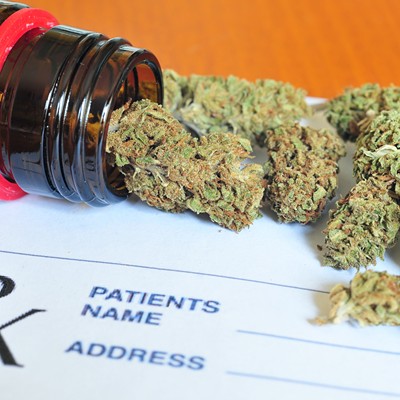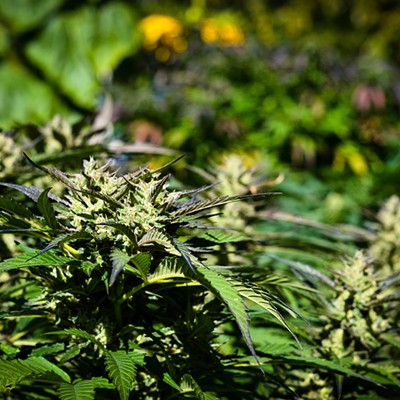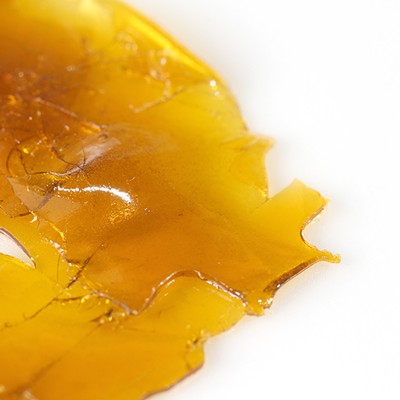There's the argument that it's a gateway drug, and that potheads inevitably morph into heroin users or crackheads, but there's very little evidence for this. There's the point of view that stoned people are annoying, slow on the uptake and disinclined to use words other than "dude" and "fucking-A," and while this point of view achieves better traction than the former, it's still not that persuasive. A little marijuana doesn't seem much more harmful than a little wine or beer, and is probably a lot less harmful than a snoot full of Wild Turkey or Everclear. I mean, let's be realistic. Who's more likely to wind up running over some poor schmuck and not noticing until the next morning when the mangled corpse falls off the grill of his pickup truck: a boozed up hillbilly, or a hippie from Bisbee? Add to this the fact that marijuana is genuinely helpful to folks with AIDS, cancer, multiple sclerosis and glaucoma, and it's hard to understand what all the hating's about.
I think it's about results. You hand a regular 19-year-old an assault weapon and send him to Iraq, and at least until they start shooting back, he'll be tearing the place up. Give the guy a joint to smoke first, and after staring out into space for 30 seconds or so, he might just come back with, "Whoa dude! If I point this thing at somebody and pull the trigger, they might, like, die."
Well, a new study published in The Journal of Clinical Investigation, adds another arrow to the quiver that is marijuana's "pro" column. Apparently, it's good for treating anxiety and depression too.
According to a team led by Xia Zhang of the Department of Psychiatry at the University of Saskatchewan (news available online at www.sciencedaily.com), there is substantial evidence that the active ingredient in marijuana causes new brain cells to form in a region of the brain called the hippocampus. This results in a reduction of anxiety and depression.
Zhang's approach in figuring this out was two-pronged. First, he gave rats large doses of the cannabanoid HU210 and dissected their brains, finding the new neurons. Then he took more rats and subjected them to something called the forced swim test. This involves putting rats into water tanks from which there is no escape, and seeing how long it takes them to drown in panic or simply give up. The stoned rats swim longer and better.
I am not making this shit up, and I am reasonably sure that Dr. Zhang, et al., spend their off hours pulling the wings off live flies, sticking strangers in crowds with straight pins, and tying fire crackers to puppies to make them run.
When I first read the results of this study, my initial reaction was, quite frankly, "Duh!" I may be an upstanding citizen now, but there was a time when my ability to roll a joint was second only to Tommy Chong's. Eight hundred years or so ago, I had a job in which I had to get up every morning at 5, go into a health-food restaurant and peel avocados for four hours. People stumbling into that place with a doobie hanging from their lips was every bit as common as people stumbling into work these days desperately clutching a Starbucks non-fat, triple-shot caramel latte. Depressing? Absolutely, but definitely less so with a good buzz on.
Of course, clinical depression and anxiety disorders are not the same as hating your character-building job, but just as obviously, I wouldn't have smoked those joints if they made me feel worse.
Think of all the rats whose lives could have been saved if only Dr. Zhang had asked me.
I'm not advocating the mass smoking of illegal drugs. However, with the anti-depressant Zoloft at a monthly cost of $86, and the anti-anxiety med Xanax at a whopping $175 per month, a little reefer might actually be cheaper. And unlike most of the other herbs touted by the supplement industry--booming, by the way, in the shadow of unaffordable prescription medications--according to Dr. Zhang and his rats, there's one herb that might actually work.










